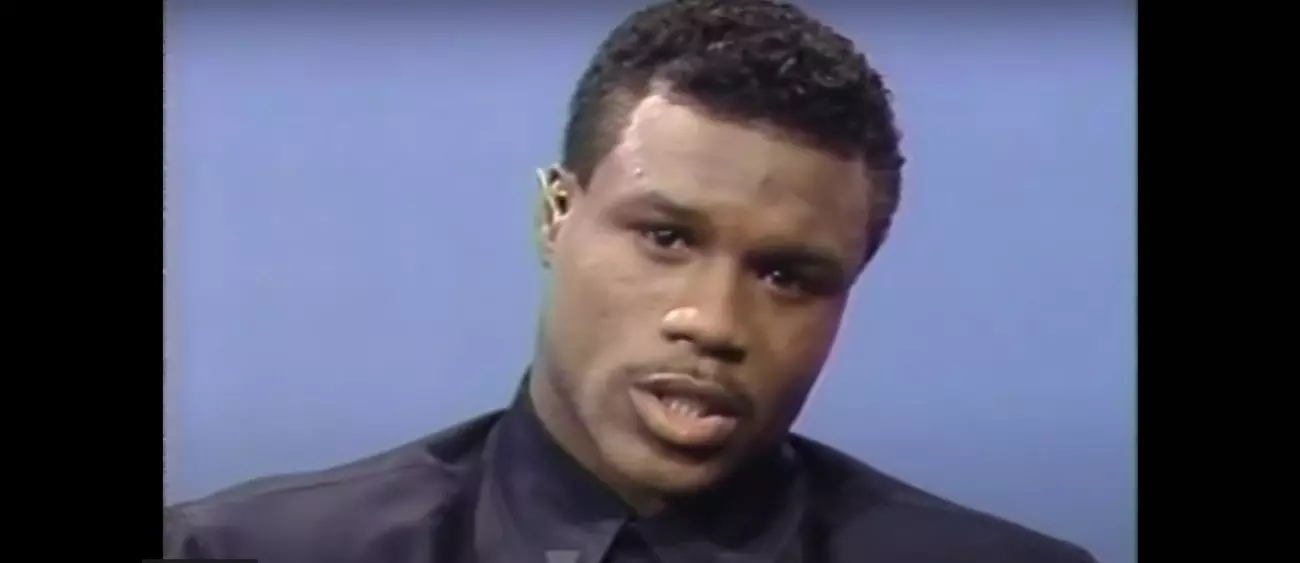In the annals of boxing history, few stories are as bittersweet as that of Meldrick Taylor. Celebrated for his incredible speed and technical skill, Taylor achieved remarkable feats, including an Olympic gold medal in 1984, and compiled an impressive amateur record of 99-4. However, it was his professional career—particularly the dramatic bout against Julio Cesar Chavez on March 17, 1990—that would both define and haunt him. Though Taylor was just moments away from securing a monumental victory, the shocking conclusion of that fight transformed a seemingly bright future into a story of lost potential and struggle.
Many boxing fans, unapologetically and passionately, regard Taylor as among the greats—even amidst his career-altering loss. The famous headline “Two Seconds from Greatness” resonates but also incites sorrow, as Taylor stands as a testament to the frailty of victory in a sport dictated by hard punches and close calls. While he fought valiantly against the legendary Chavez, the fight would ultimately send Taylor’s career into a tailspin, raising questions about what might have been.
The match itself epitomized the brutal intensity of boxing. Taylor entered the squared circle not just as a competitor but as a symbol of Philadelphia boxing prowess, alongside legends like Joe Frazier. He aimed to embody the spirit and heart inherent to those hailing from his city. Armed with dazzling speed and exceptional footwork, Taylor engaged in a toe-to-toe battle that fans found electrifying despite the toll it took on him physically.
Throughout the bout, Taylor showcased his skills, often appearing in command against the harder-hitting Chavez. By the twelfth round, not only was he leading on the scorecards, but he also displayed the kind of boxing acumen that few possess. Yet, combat sports demand more than just skill; they require strategy. In an arduous fight, Taylor’s inclination to mix it up rather than employ a tactical retreat proved to be his downfall. The challenge of facing an opponent with Chavez’s tenacity meant that mingling in the pocket, rather than staying elusive, would cost Taylor dearly.
As the clock wound down, the unthinkable happened. Despite being ahead on two of the three judges’ scorecards, Taylor absorbed a punishing blow that led to a controversial stoppage by referee Richard Steele. Many observers questioned Steele’s timing: did he intervene too soon? The boxing world erupted; emotions ran high as audiences reeled from the abrupt end. Taylor, dazed but desperate, was denied the chance to claim what could have been one of the greatest upsets in boxing history.
Taylor’s career post-Chavez defies easy categorization. Despite some wins, they lacked the same luster and significance as his prior successes. The crushing loss in the ring seeped into his life outside of it, as questions about his health and cognitive ability began to surface. The once-celebrated “Kid” was now showing signs of physical decline, often slurring his words and struggling to maintain the sharpness that had once defined him.
In focusing on that moment against Chavez, it’s vital to recognize how it altered Taylor’s trajectory. The toll of the fight went beyond physical injuries; it became a marker of what could have been. Notably, had Taylor adopted a different approach—opting to outbox rather than engage in a brawl—his career and legacy might have taken a significantly different turn. One can only speculate how the boxing landscape might have shifted had he claimed victory that fateful night, unlocking an era of continued triumph instead of tragedy.
Now, as he commemorates his 58th birthday, Meldrick Taylor’s presence in the boxing world remains largely subdued. An incredible athlete who captivated fans with flash and flair, Taylor battles a different opponent today: the shadows of his past and the physical and mental toll of his sport. While his legacy as a fighter is undeniable, encapsulated by moments of sheer brilliance, it is also punctuated by loss and hardship—a duality that makes his story all the more resonant.
What remains is not just the record of an elite athlete, but the poignant reminder of the sacrifices made inside the ring. As fans, we can honor Taylor’s implausible journey by reflecting on both the highs and lows of his life. Today, we hope he enjoys his well-earned legacy, finding solace in the knowledge that, though boxing’s demands are unforgiving, his contribution to the sport transcends the final bell of any single match.

